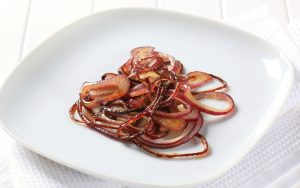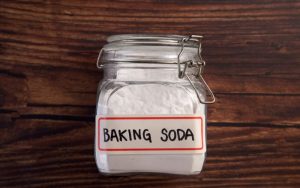
Even Chefs Forget the Basics
There are things I know—really know. Things I learned in culinary school, drilled into my head, used in restaurants, even taught to other people. But somehow, I still have to relearn them.
When Baking Bites Back
Same thing happens with baking.
I know pastry isn’t like savory cooking. I know baking is basically math you can eat. And yet, when I’m making a batch of coconut cakes, what do I do? I eyeball the baking soda. Because I’m feeling bold. Or lazy. Or both.
That’s how you end up watching a mound of baking soda tumble into the mixing bowl like it’s falling in slow motion, and you can’t do anything about it but whisper, “Nooooo…”
At that point, it’s over. This isn’t tossing in an extra garlic clove. It’s not recoverable. There’s no rescue mission for bitter, blown-out cakes.
Lessons Worth Relearning
The irony? These aren’t complicated lessons. This isn’t truffle foam or some obscure sous vide timing. It’s the basics. I know them. I’ve taught them. And I still break them.
Why?
Because once you know food, really know it—when you’ve cooked for years, when you trust your instincts—it’s easy to believe you’ve earned the right to improvise. Sometimes that works. Other times, that freedom backfires.
Cooking is like a song: every ingredient is an instrument. Add too much of one, and the whole thing’s off-key. It’s not about being fancy. It’s about being intentional.
Knowing Better, Doing Better
Even though I know all this, I still mess up. Not because I don’t care, but because I get too comfortable. Too confident. Too distracted. Sometimes all three.
So yes, I keep relearning the same lessons. Over and over.
And honestly? I don’t think that’s a flaw. I think that’s the job.
Because cooking, like everything that matters, isn’t just about knowing better. It’s about doing better.









